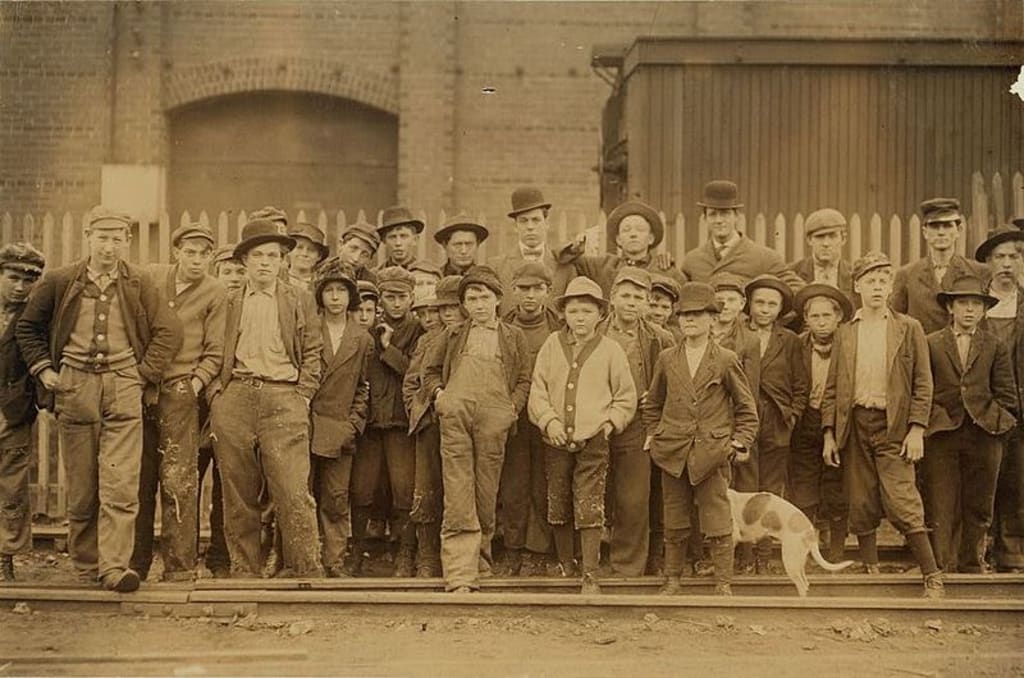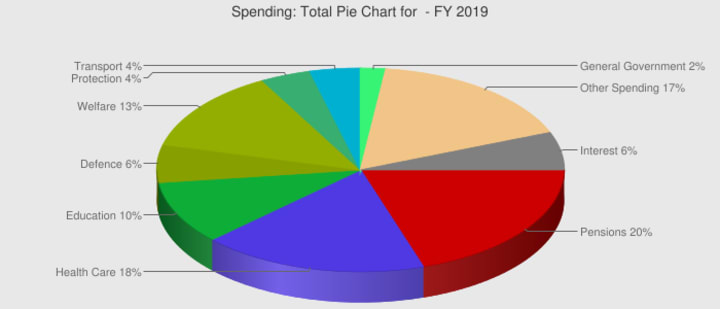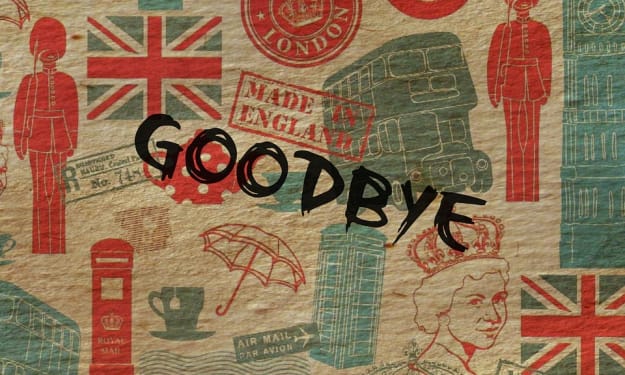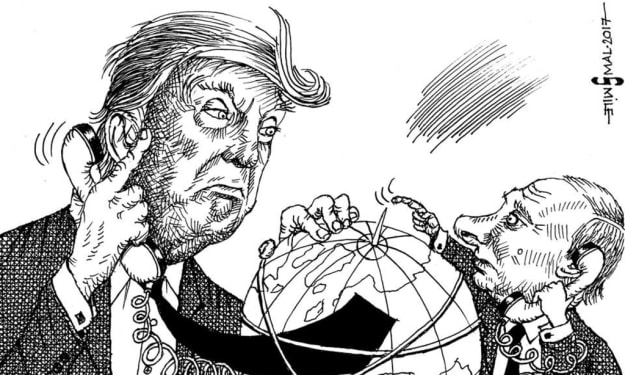The State of the Welfare State
Welfare gets a bad name, but we should be grateful for it.

The UK welfare system has a lot of problems at the moment. The reasons behind those problems differ depending on one’s political outlook, but there are issues that need addressing whatever your views. It’s worth looking back at the history of welfare in the UK, in order to understand how we have arrived at this point. First, we need to define “the welfare state.” In general terms it is:
- A concept of government in which the state plays a key role in the protection and promotion of the social and economic well-being of its citizens.
But in terms of what that actually means for the UK, we need to understand how our welfare system came about, and how it has evolved since then.
Compulsory schooling was introduced in the 19th Century, but healthcare was paid for privately, or accessed through charity. The poor had very little state support, and would end up begging for alms, or be sent to the workhouse. The Victorian view was that the poor could be divided into two categories: the “deserving poor” who couldn’t work, and the “undeserving poor” who wouldn’t work.
World War I was actually a time of increasing prosperity for the UK, with more people (mostly women) becoming economically active, and living standards improving. But the Second World War had a different effect. By the time WWII was over, Britain was absolutely trashed. The infrastructure and city centres were damaged from bombing, the nation’s health was substandard, and the general population was poor and malnourished. On top of all that, there were military personnel returning from war in need of rehabilitation and employment. It was a huge mess, and drastic measures were needed to sort it out. This is when coherent social insurance policies were created.
In 1942, the economist William Beveridge published his famous report on the five great evils harming British society. The Labour government of 1945-51 used his findings to reorganise public services into what we now recognise as the Welfare State. Clement Attlee’s premiership was secured through the policies the Labour Party detailed in their manifesto leading up to the 1945 general election.
The Five Giants were identified as Want, Ignorance, Idleness, Squalor and Disease. As a means of tackling these five social problems, state intervention was necessary, and a huge restructuring of public services, from the top down. The main reforms were in healthcare, with most services being nationalised and coordinated to form the NHS, a health service free to all, irrespective of one's means. Changes to pensions and unemployment & sickness benefit meant that there was now universal provision for those unable to work. Large-scale building projects were funded to provide social housing. Nobody was to be left destitute.
To summarise, the Welfare State consists of:
- Universal healthcare
- Universal education
- Public services and amenities
- State benefits, pensions and allowances
Although the chart below simplifies some things and makes it harder to see others, most of what we refer to as "welfare," i.e. state benefits for unemployment and sickness, is a mere 13 percent of the total, and that slice of the pie also includes means-tested benefits available to many working families. It's quite difficult to source easy-to-digest and comparable data of the various types of benefit claimants, because there is such variation in the questions being asked of the different data sets. However, we do know that the majority of "welfare" payments are to pensioners, and that 60 percent of households in poverty are working households—so it's not just the unemployed and sick that rely on the welfare state. Taking into consideration healthcare and education, the actual welfare cost is almost 2/3 of government expenditure. It's not frivolous spending—it's necessary for the state to function.
Welfare is bigger and better than most people think.

The popular view of the welfare state remained positive until the 1980s, when the transition to neoliberal policies began. This change in mindset was accepted by most because the Five Giants had largely been slain. How short people’s memories are. From this point on, welfare was seen as a dirty word, and there was no distinction made between the “deserving” and “undeserving” poor. All individuals and households were to take more responsibility for their own needs, rather than relying on the state. This is summed up by Margaret Thatcher’s infamous statement:
"They are casting their problems at society. And, you know, there's no such thing as society. There are individual men and women and there are families. And no government can do anything except through people, and people must look after themselves first. It is our duty to look after ourselves and then, also, to look after our neighbours."
But the main change in state welfare during Thatcher’s time was the introduction of the Right To Buy scheme, where social tenants could purchase their homes at reduced cost. The replenishment rate of social housing did not keep pace with the rate at which it was being sold, and while the rationale behind such a policy sounded fair and progressive at the time, we are now seeing the consequences of this underhand shrinking of the state. Social tenants were thrilled to be able to own their own homes and to inch their way into the respectable middle classes. But it means that now there is little left for those in genuine need.
State benefits have changed names, been moved from department to department, risen and fallen over the years, but remained largely available to those who needed them until recently. While the largest part of the benefits cost goes on pensions, the austerity programme of the last two Conservative governments has targeted the unemployed and sick. However, this is not strictly a scaling back of state support as the cost of state benefits has risen during the time the Conservatives have been in power—including the astronomical cost of implementing policies designed to cause hardship. Whether or not you support these policies, it is undeniable that there have been serious social consequences. Those Five Giants are rising up from the grave, ready to consume us like zombies.
We have also seen the privatisation of some NHS services, with more to follow if the Conservatives have their way. I have also noticed, from the services that I have been referred to, an increase in the reliance on voluntary organisations to pick up where the state falls short —in areas such as mental health and lifestyle support. For now, our healthcare is still free at the point of use, but for how much longer?
There are pledges made by the Labour Party to return to socialist policies, including renationalisation of certain industries & infrastructure, and the construction of more social housing. We’re in a position now where the nature and capability of the welfare state could improve or decline. Rumours of a general election this year could play a large role in determining which path we take. Outside of what is politically tenable in the present climate, there are murmurings about the Universal Basic Income, which could completely change how welfare payments are made. It could even help us to see that we all benefit from welfare.
Be it a pension, sickness benefit, child benefit, free healthcare or a decent education, we have all gained from the welfare state. When I see the Five Giants re-emerging, I wish we could return to a more compassionate way of thinking—not just because it’s fluffy and nice, but because we’d be less likely to tolerate such rampant poverty and inequality in our society. These in turn harm each one of us, not just financially, but in terms of the type of country we live in. Welfare spending has gone up under the Conservatives in spite of their austerity measures and small-state aspirations. If there are citizens becoming sick, malnourished, economically inactive, we all end up paying more—whether we call it welfare or something else. We might as well be open about it and recognise that we all will need some form of welfare during our lives.
About the Creator
Katy Preen
Research scientist, author & artist based in Manchester, UK. Strident feminist, SJW, proudly working-class.
Enjoyed the story? Support the Creator.
Subscribe for free to receive all their stories in your feed. You could also pledge your support or give them a one-off tip, letting them know you appreciate their work.






Comments
There are no comments for this story
Be the first to respond and start the conversation.